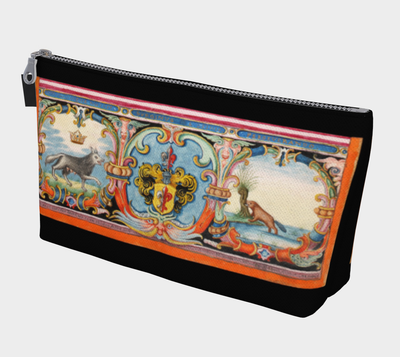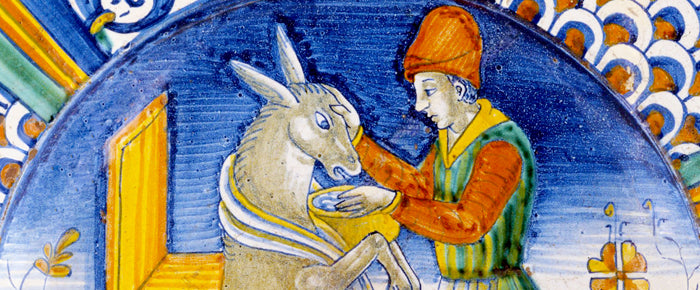During the Middle Ages, people's relationship with time was very different from ours. Death was always looming in the mind of the Medieval man, due to inadequate sanitary conditions and poor medical knowledge.
A short life span meant they had to do the best with their limited time.
Interestingly, the misuse of time was not just a simple source of regret, but it was considered an actual sin. A missed opportunity for good would weigh on their conscience as much as a sinful decision.
Time had to do with choices and, ultimately, salvation.
Surprisingly for such a serious topic, a great sense of humor pervades the Medieval representations of time, as we can see in the following two stories.
The Fox and the Boar
This Medieval design is inspired by one of Aesop's famous fables where animals have human traits, as it often happened in Medieval bestiaries.
As the story goes, a wild boar was whetting his tusks against a tree in the forest. A fox who was passing by, started making fun of the boar. "I see no reason for it," said the fox while laughing. "There are no huntsmen nor hounds in sight...nor any other danger that I can possibly see."
"True, my friend" replied the wise boar, "but when danger does come, I shall need to use my tusks. There'll be no time to sharpen them then!"
The moral is to use time wisely. It is too late to whet the sword when the trumpet sounds to draw it!
When you wash the face of an Ass...


This reproduction of a Medieval plate dates back to 1550, and it is a beautiful example of the majolica produced in the city of Deruta, Italy.
Here a donkey sits on a chair with a towel around the neck, while a man scrubs its face. The painting refers to an old Italian proverb: "Chi lava il capo all'asino perde il sapone," or "He who washes the head of an ass wastes the soap."
This is another moralizing tale about the use of time, a warning not to waste time trying to change things (or people) that are not worth it!









